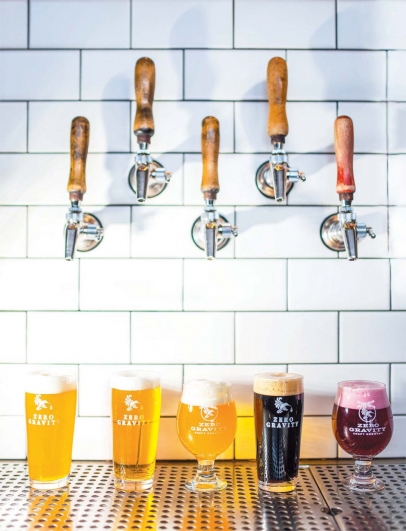Vermont Craft Beers: Magic in a Glass, Can, or Bottle
The craft beer scene continues to expand and redefine itself, with new brewers branching out on their own and established brewers continuing to experiment and produce new beers along with their old standbys.
For years now, Vermont has been known as an epicenter of craft brewing, producing some of the best beers on the market. And the craft beer scene continues to expand and redefine itself, with new brewers branching out on their own and established brewers continuing to experiment and produce new beers along with their old standbys. Following are a few of the breweries, some that are new to the scene and others that have already made a name for themselves, which are holding up Vermont’s reputation as a home to some of the country’s best craft brews.
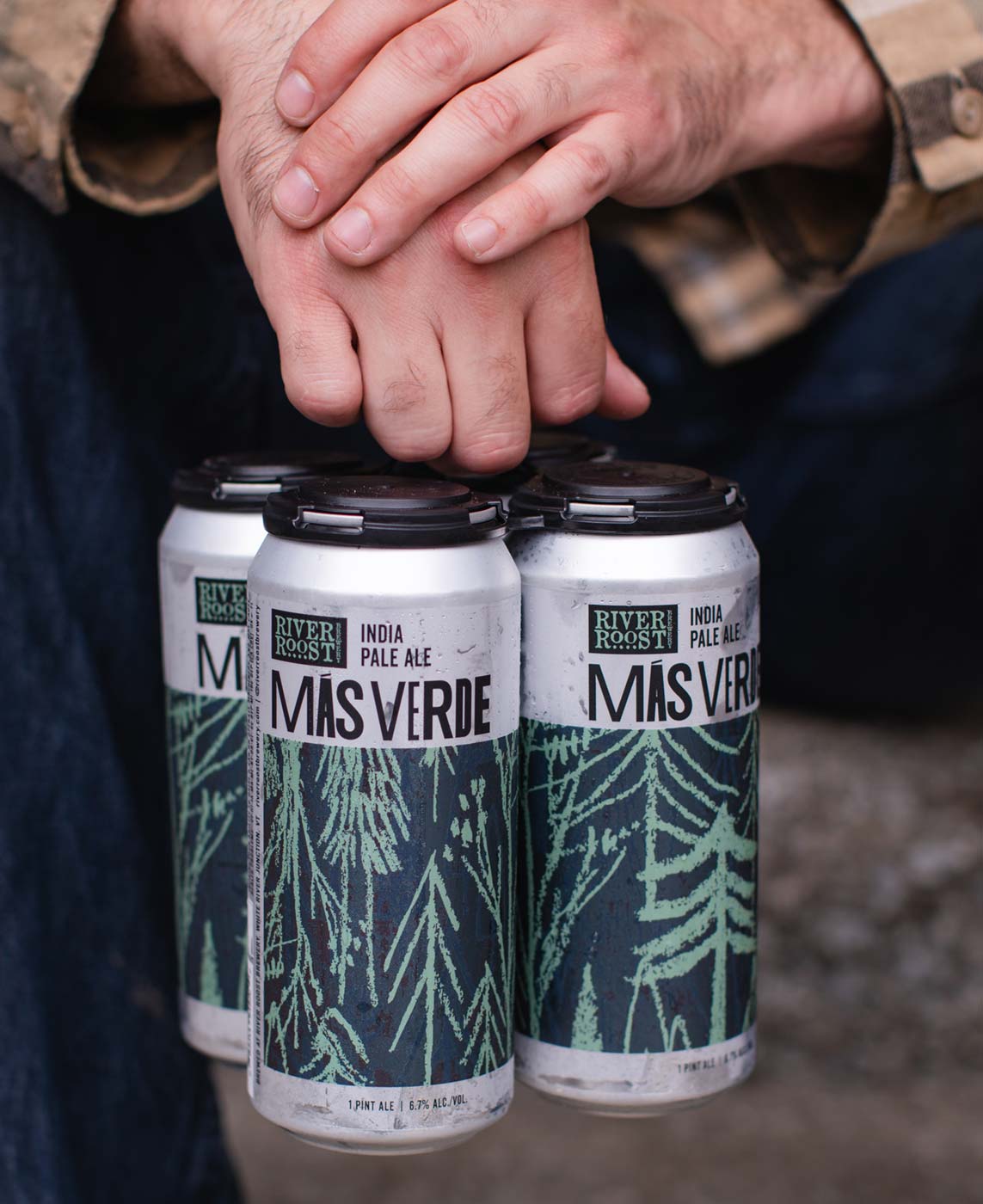
Photo courtesy of Brent Harrewyn
RIVER ROOST BREWING
At River Roost Brewing on a sunny Saturday afternoon, their doors aren’t even open yet but cars are already pulling into the parking lot. Owner and operator Mark Babson established the White River Junction–based brewery in 2016 and has since made a name for himself in the Vermont craft brew scene. Known particularly for their IPAs such as their flagship beer, Más Verde, and their double IPAs such as Glimpse and Hello Hello, River Roost also offers a range of other beers, including bottles of mixed-culture saisons aged in a variety of casks and barrels. Mark had worked in several breweries, including Magic Hat in Vermont and Woodstock Inn and Brewery in New Hampshire, before deciding to branch out on his own. “I always had the itch to be making my own beer, so I decided I had to try and just went for it,” he says. He adds that the first year was a labor of love, with the operation consisting of himself and help from his family, but they’ve since expanded and now have five employees.
The brewery recently got a license to pour beers in their taproom and have set up an outdoor seating area with picnic tables. In addition, they have plans to add a tasting room and an outdoor patio in the near future, where they will offer cheese plates and light fare to accompany their brews. In the meantime, for those looking for a great meal after a stop at River Roost, the brewery shares a parking lot with Big Fatty’s BBQ, which, in addition to offering delicious barbecue, has an excellent draft list and a bottle shop with a great selection of craft brews and a crowler (a 32-ounce can) fill station that provides the freshest River Roost in the state outside the brewery!
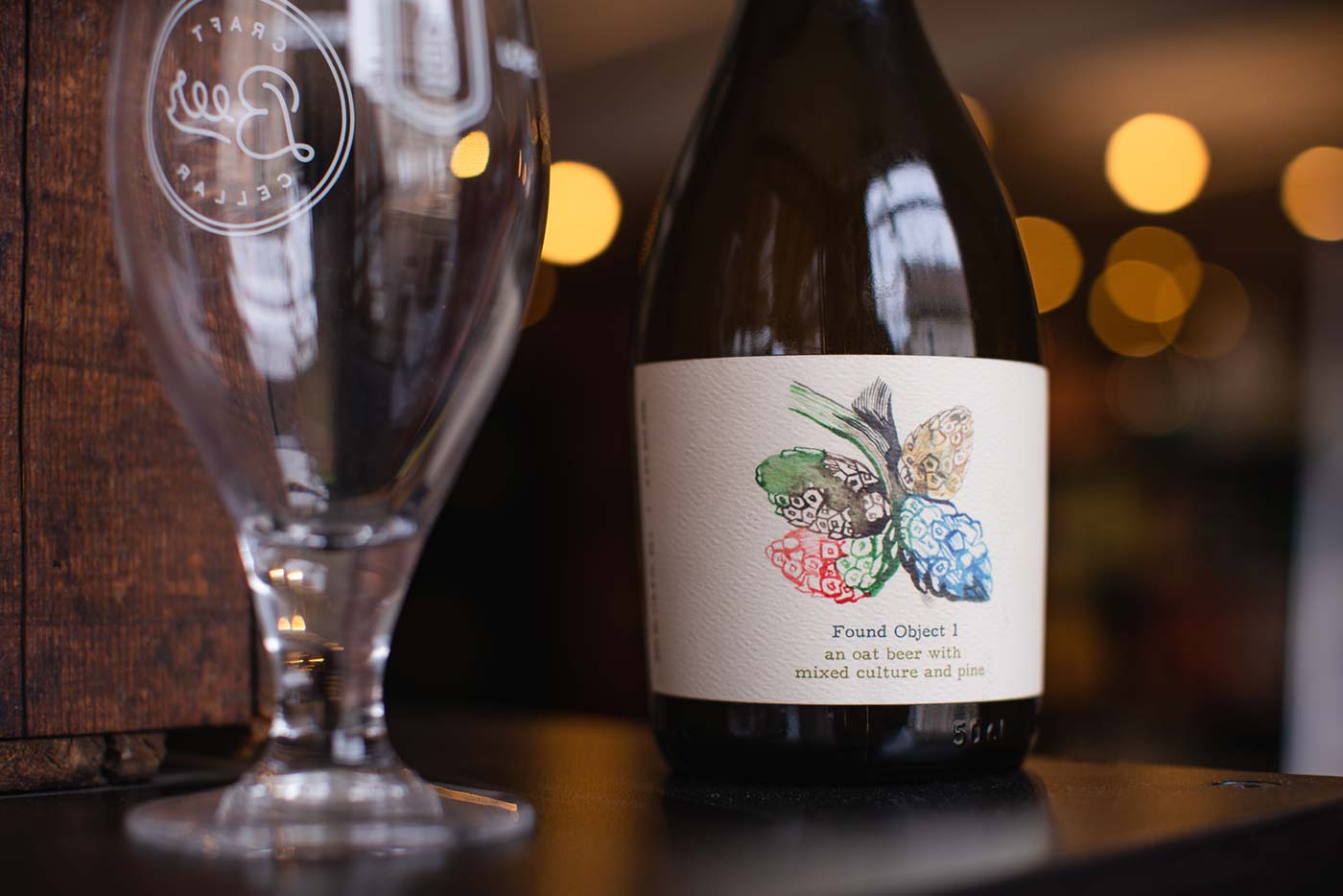 Photo courtesy of Brent Harrewyn
Photo courtesy of Brent Harrewyn
WUNDERKAMMER BIERMANUFAKTUR
For Vasili Gletsos of Wunderkammer Biermanufaktur, his work combines his love of craft brewing, foraging, and art making. And he’s using these skills to make some truly creative and unique beers from his base in the Northeast Kingdom. Vasili has been professionally brewing and foraging for the last 15 years. He had the opportunity to combine his two passions as a side project while he was working at Hill Farmstead Brewery. But he wanted to continue to explore using different foraged ingredients, so he decided to expand on his own with Wunderkammer. The German word roughly translates as “curiosity cabinet,” and Vasili notes that he chose the name in homage to the 16th-century personal museums that people used to showcase objects they found beautiful or fascinating.
Vasili says that, contrary to what people picture when they think of foraging, it’s not a matter of going deep into the woods to find the secret mushroom, but rather using common plants such as sumac and goldenrod, which can be found in meadows throughout Vermont. “One of the connections I wanted to make is that these things are part of the landscape at large, not just exotic foraged materials,” he says.
In addition to using wild plants, mushrooms, and lichen, Vasili experiments with vegetable beers, recently making a beer with roasted fennel, which he says brings a blend of earthiness and bright, spicy notes as well as the expected anise flavor. His current brewhouse, located on a former dairy farm, is housed in a previous creamery with retrofitted dairy equipment and a wood-fired copper kettle. While his current setup doesn’t allow for visitors, Vasili is hoping next year to start curbside service to give people the opportunity to buy direct and see where the beer comes from.
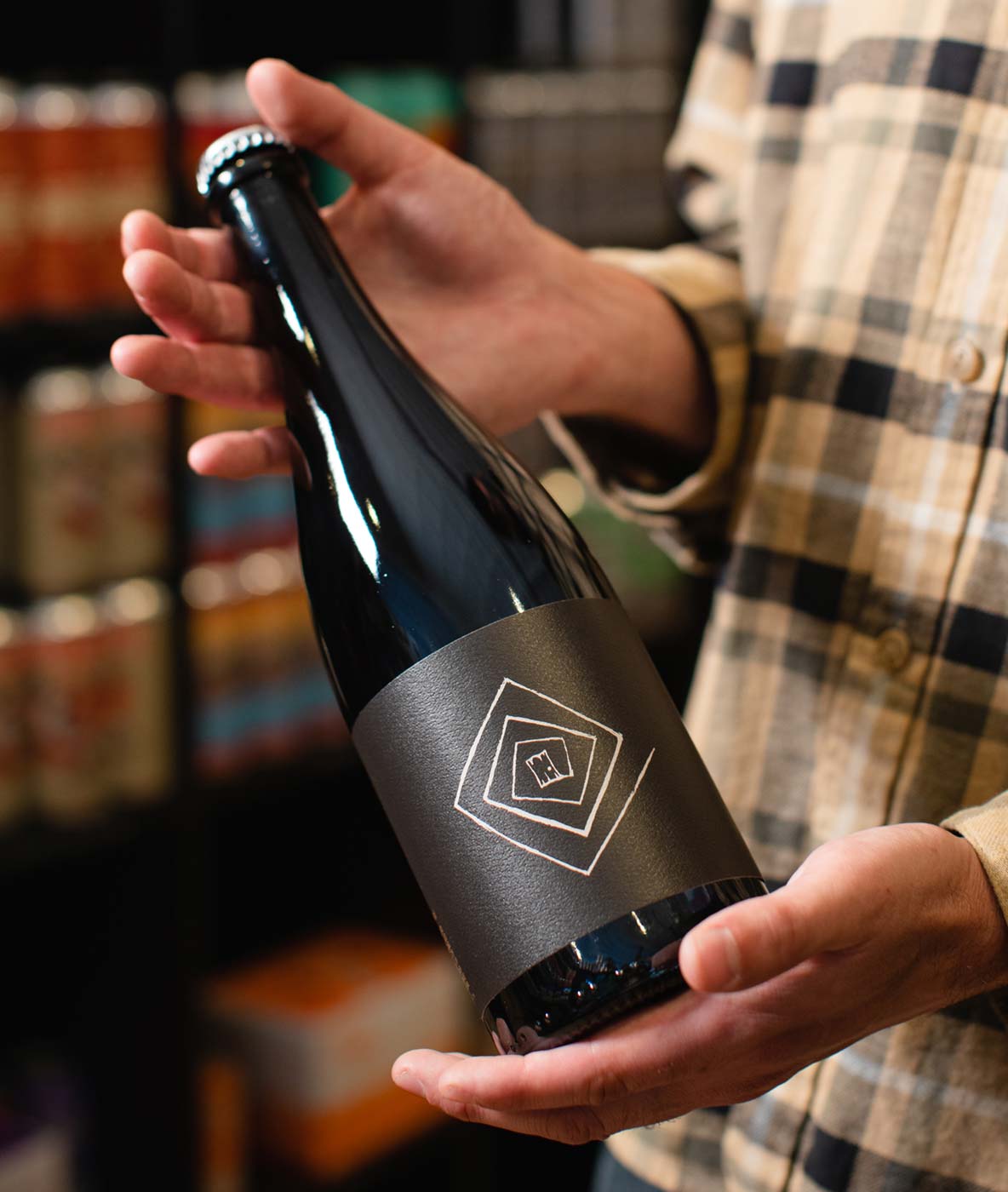
Photo courtesy of Brent Harrewyn
FREAK FOLK BIER
For Freak Folk Bier co-founder Ryan Miller, the path to running his own brewery has taken him across the country and back, with stops at various cities and breweries along the way. Now, Ryan and his cofounder Lillian MacNamara are in the process of putting down roots and opening a brewery and tasting room in Waterbury, with plans to open in the fall. The couple started the business in the summer of 2018 and made their first sale a year later. Ryan relates that when they were looking for a space, it turned out that Queen City Brewing in Burlington—where Lillian is currently employed as a brewer—had a space to rent, which worked out perfectly as they were able to start brewing using the Queen City system. Lillian, who has been brewing professionally since 2010, says she’s long dreamed of having her own brewery. “After 10 years of brewing here in Vermont and finally finding the perfect partner to make it happen with, that dream is slowly coming to fruition,” she says.
Freak Folk has become known for its mixed-culture beers, which are aged anywhere from three months to two years. The beers are fermented using a combination of brewer’s yeast, wild yeast, and bacteria, with the resulting product resembling a natural wine, according to Ryan. “Most breweries are afraid of bacteria and wild yeast. They don’t want that infecting their breweries, but we take a different approach,” he says. That approach has yielded them quite a few fans—the cases of bottles they sell through several local retailers sell out quickly (you can follow them on social media to get the latest on upcoming releases). The new location, in downtown Waterbury on Stowe Street, will feature a 21-seat bar with an expanded range of drink offerings including pale ales, lagers, and barley wines. As far as the name Freak Folk, Ryan says it was just something they came up with while brainstorming, and it just had a nice Vermont ring to it.
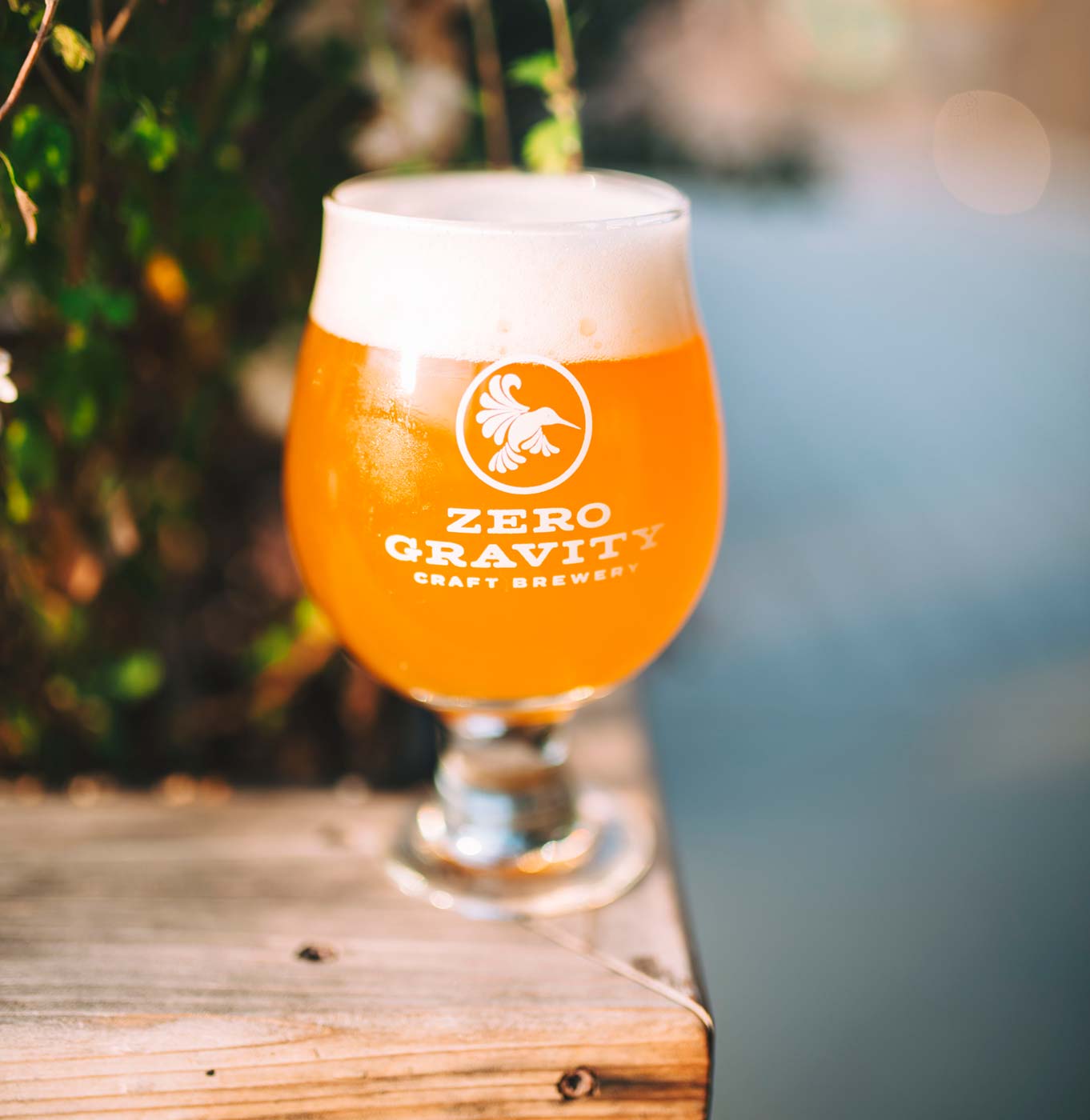
Photo courtesy of Zero Gravity Craft Brewery
ZERO GRAVITY CRAFT BREWERY
Any fan of Vermont craft brews will be familiar with the name Zero Gravity. In 2004, they began brewing in Burlington’s American Flatbread pizzeria, which continues to serve their beers today. When they expanded distribution of their beers, they moved to their Pine Street facility, also in Burlington, and opened their taproom there.
After making the move to Pine Street, Zero Gravity was later joined by their neighbor restaurant, The Great Northern, and eventually combined forces. Emma Shea, the brewery’s public outreach and community relations coordinator, says of the partnership: “The Great Northern makes beautiful food, and it has been a pleasure to combine forces with them and serve their dishes via our taproom. We will continue to work together to make the most inviting gathering space for our community that we can.” During the pandemic, Zero Gravity expanded the outdoor seating at their taproom, installing heating units and socially distanced tables along the length of the sidewalk area extending down to The Great Northern. It became a popular spot during winter months as one of the few places able to provide comfortable outdoor seating even on cold days.
As the brewery has expanded, their production needs have continued to grow, so they recently jumped at the chance to move into a facility on Bartlett Bay just down the road from Pine Street, in the space once occupied by Magic Hat Brewing, one of the breweries that put Vermont on the map of craft brewers. According to Emma, Zero Gravity needed more production space, and moving to the former Magic Hat facility felt like the most organic solution. She says, “We’re fortunate to be able to increase our capacity while staying true to our roots, and it’s cool to be in the building where Magic Hat created so much craft beer history.” She added that while the space provides more capacity than they currently need, it gives them plenty of room to grow. “It frees up space for us to create innovative and creative small-batch beers that have always been at the heart of our work.”
While fans of Zero Gravity will be comforted to know that they will of course continue production of their popular beers such as Cone Head IPA, Little Wolf Pale Ale, and Madonna double IPA, they will also continue to produce new beers. The brewery has a pilot system that allows them to brew small, experimental batches of beer. Each month a new specialty will be available exclusively in their taproom in Burlington as well as rotating specialty drafts. Last year they also introduced their first nonalcoholic beer, Rescue Club IPA. Produced in partnership with the co-founder of Citizen Cider, the beer is made with a proprietary technique that delivers a nonalcoholic beer without sacrificing the hoppy-ness and flavor that fans of Zero Gravity associate with their brews.
MEULEMANS’ CRAFT DRAUGHTS
Any Vermont beer enthusiast worth their salt will tell you that Meulemans’ Craft Draughts offers one of the best selections of brews in the state. Owned by Greg and Pat Meulemans, the 800-square-foot store in Rawsonville packs an amazing variety of Vermont and regional beers, as well as some offerings from other parts of the United States and Europe. If you need some suggestions, Greg and Pat will be more than happy to provide them for you based on your tastes.
In addition to their great beer selection, they sell cider, mead, wine, and a variety of Vermont products such as Cold Hollow Maple Mustard, Derrybrook Maple Syrup, and Lake Champlain Chocolates. The mom-and-pop shop also happens to share a building with Family Kitchen & Pizzeria, a BYOB operation, so you can grab your favorite brews at the store and then head next door for a pizza or a burger. Beer enthusiasts can check out their Facebook page or join their mailing list for updates about new additions to their beer selection, as well as occasional food pairings, such as a recent weekend when they offered a Mexican-style lager to complement the tacos served at Family Kitchen. Aspiring chefs should also check their website, which features several recipes for cooking with beer or cider, such as chicken and green olive enchiladas that use a chocolate stout to make a mole-style sauce.


